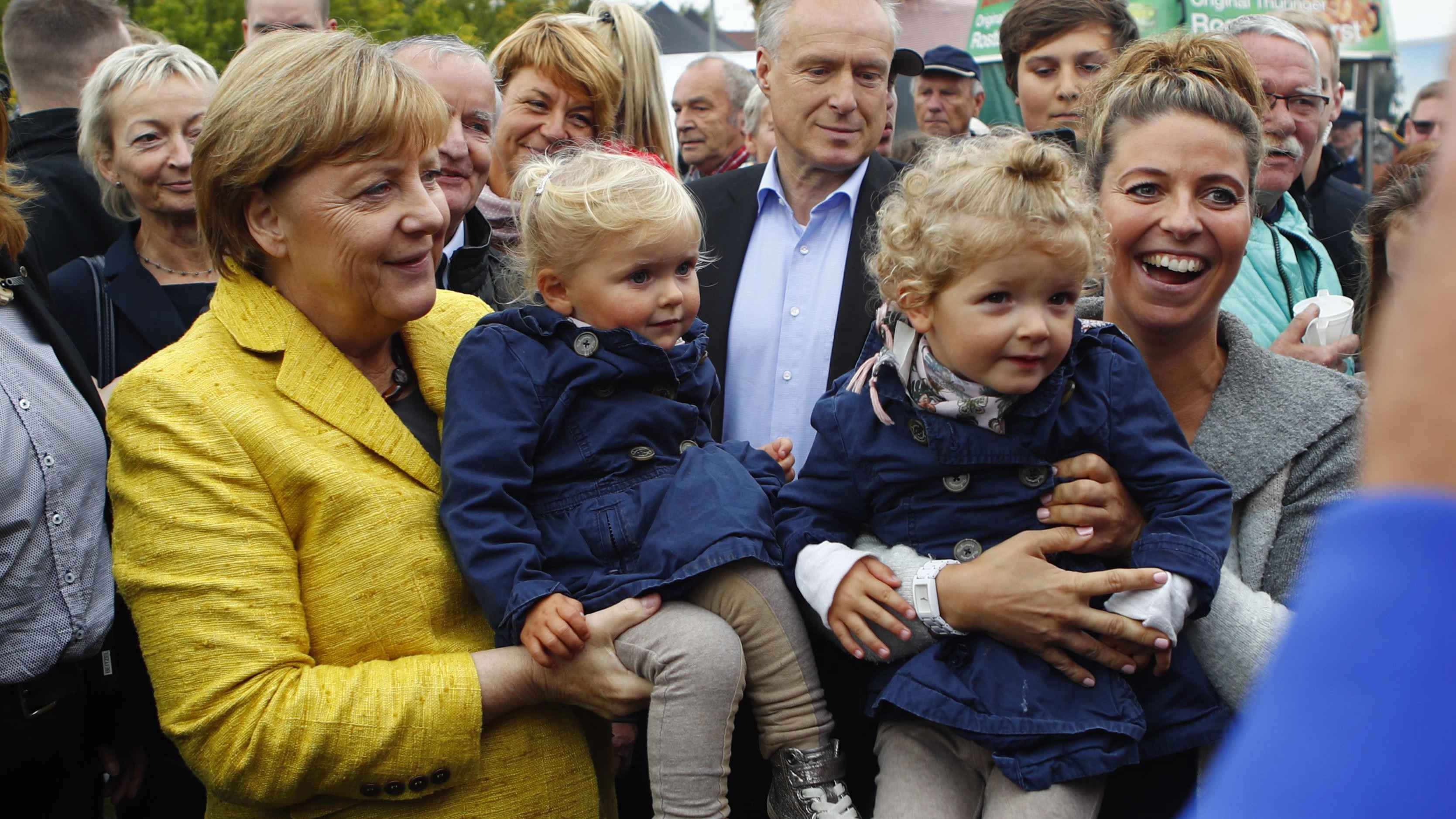Candidates in Germany’s national elections are making a final push to sway voters before polls open Sunday. Chancellor Angela Merkel hopes to win a fourth term, but opinion polls suggest support is rising for parties at either extreme of the political spectrum.
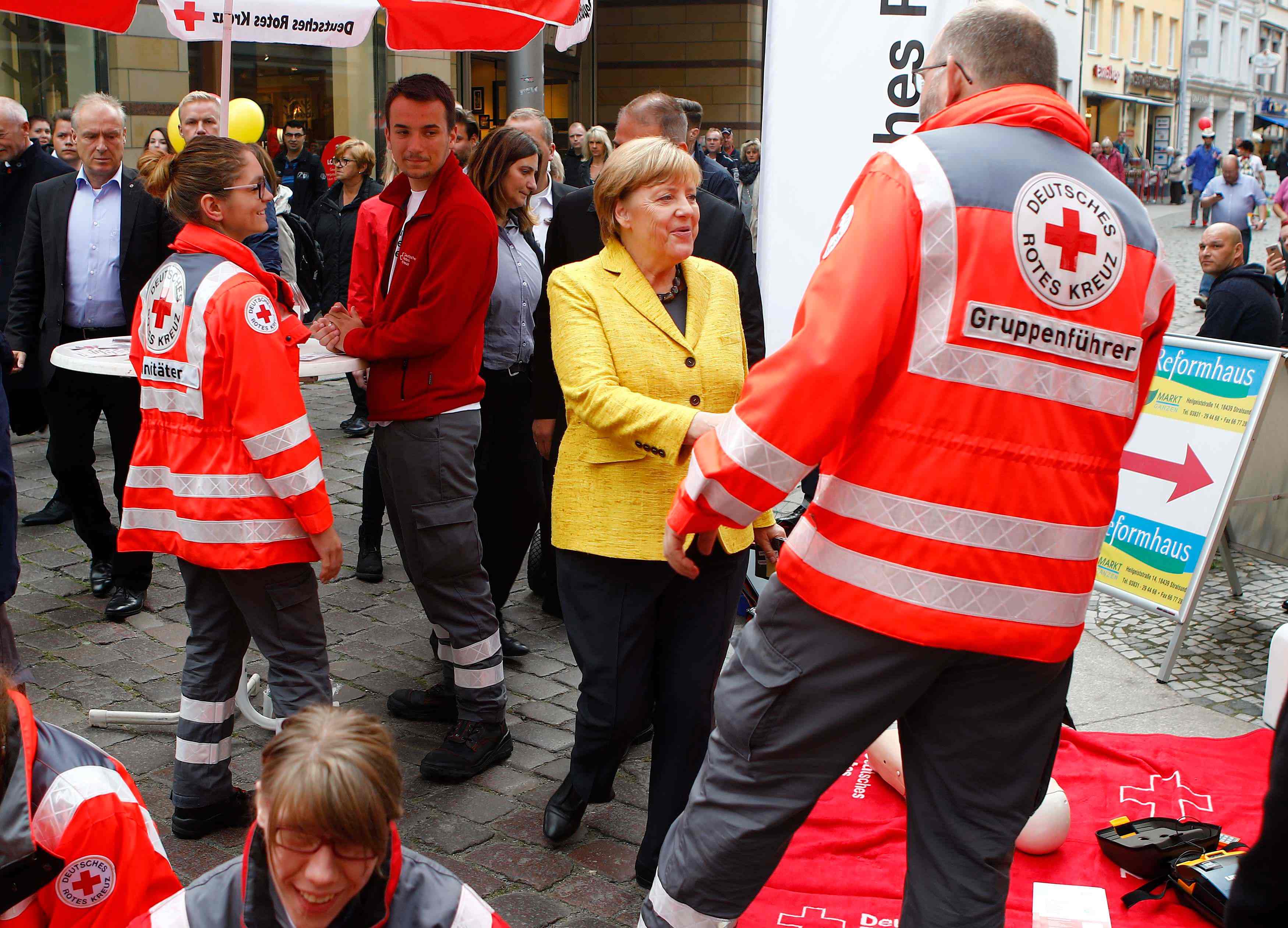
German Chancellor Angela Merkel speaks to German Red Cross volunteers during the final Christian Democratic Union (CDU) party campaign in Stralsund, Germany, September 23, 2017. /Reuters Photo
German Chancellor Angela Merkel speaks to German Red Cross volunteers during the final Christian Democratic Union (CDU) party campaign in Stralsund, Germany, September 23, 2017. /Reuters Photo
CGTN’s Guy Henderson reports from Berlin.
Once a center-left Social Democrat, Guido Reil is now a candidate for the far-right Alternative for Germany. It’s a big change, but Reil believes the working class will follow him on election day.
"In almost all countries around the world, people are standing up against the establishment," he said. "They don’t understand what is happening in politics anymore. Classic parties like Germany’s Christian and Social Democrats are already disappearing in other European countries: Italy, for example, and Holland. I believe this will also be the future in Germany."
The AfD’s nationalist message has been largely taboo in previous elections but is now likely to land them seats in the national parliament for the first time.
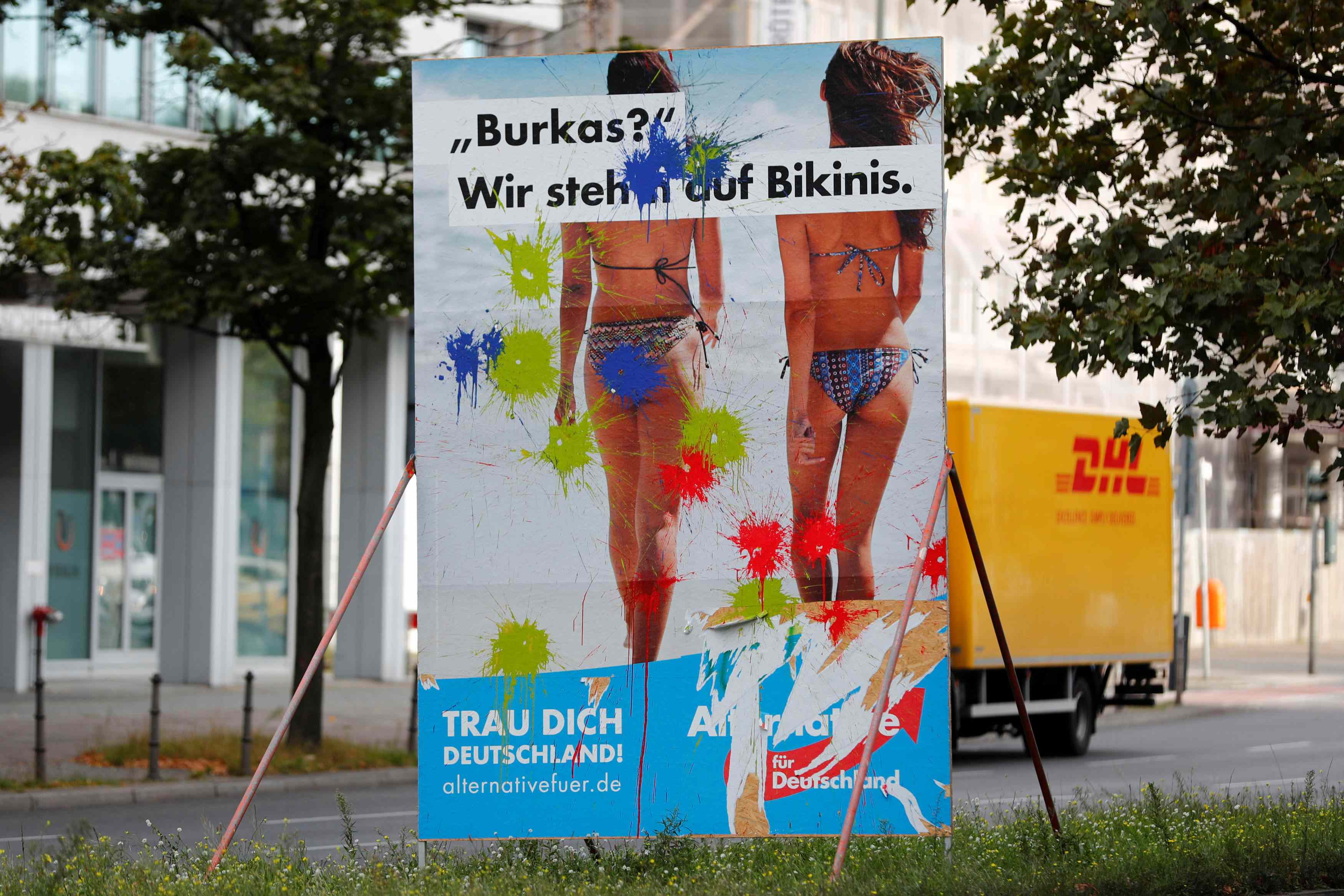
A vandalized election campaign poster of Germany's anti-immigration Alternative for Germany party (AfD) is pictured in Berlin, Germany, September 11, 2017./Reuters Photo
A vandalized election campaign poster of Germany's anti-immigration Alternative for Germany party (AfD) is pictured in Berlin, Germany, September 11, 2017./Reuters Photo
Wherever they go, protesters follow. Even stable Germany is getting is fill of political polarization.
Many believe the divisions that led to a racial rupture in the United States don’t exist to the same extent in Europe. But Alternative for Germany believes that anger has been muffled out by mainstream parties and the media, leaving it bubbling just below the surface.
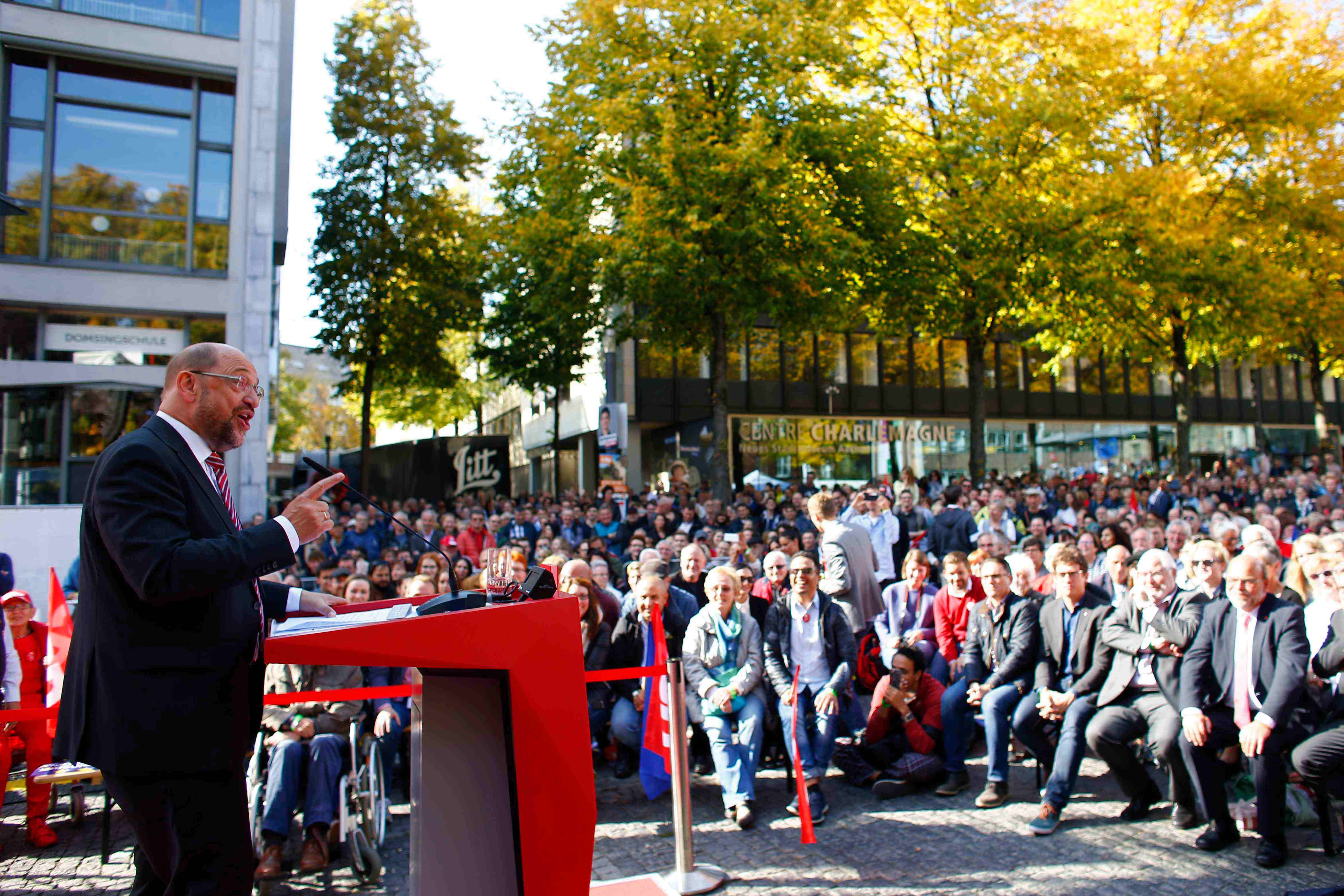
Social Democratic Party (SPD) Chancellor candidate Martin Schulz speaks during the final campaign rally in Aachen, Germany, September 23, 2017. /Reuters Photo
Social Democratic Party (SPD) Chancellor candidate Martin Schulz speaks during the final campaign rally in Aachen, Germany, September 23, 2017. /Reuters Photo
The migrant crisis features heavily on AfD campaign posters. But in Reil’s constituency, there’s an additional message. His party has tried to home in on economic discontent in former mining areas.
Views remained mixed amongst friends and neighbors, however.
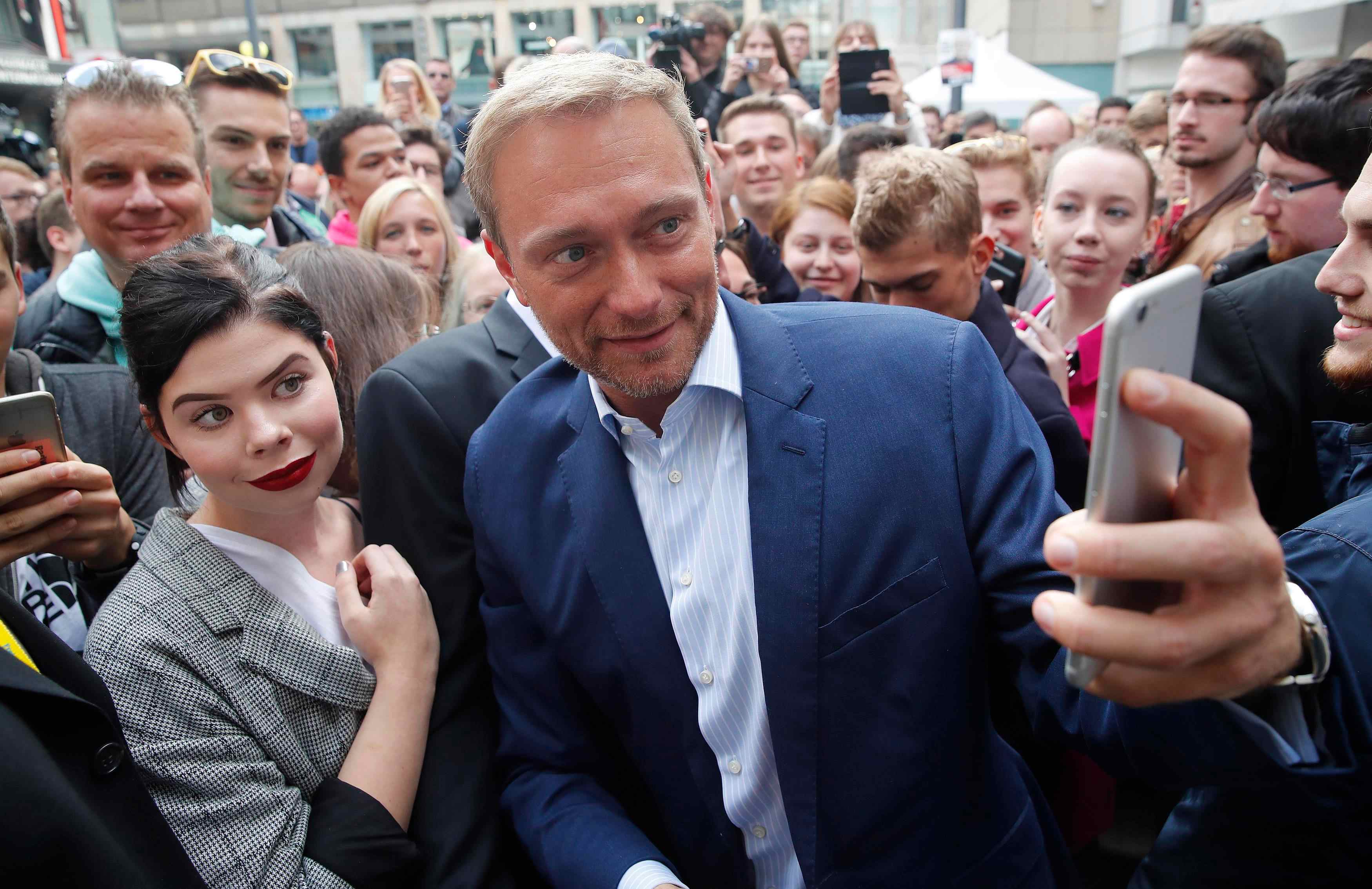
The leader of Germany's Free Democrats (FDP) Christian Lindner takes a selfie during the final campaign rally in Duesseldorf, Germany, September 23, 2017. /Reuters Photo
The leader of Germany's Free Democrats (FDP) Christian Lindner takes a selfie during the final campaign rally in Duesseldorf, Germany, September 23, 2017. /Reuters Photo
Right from the start, other parties have sought to isolate the AfD. Some have also targeted an increasingly popular socialist party called The Left.
"We say clearly: no coalition with the AfD and no coalition with the Left," German Chancellor Angela Merkel once said. "The Social Democrats have been lacking this clarity. They do say [point to] the AfD, but they don’t say anything about the Left."
A power-sharing deal with the CDU looks probable – and there are four more moderate contenders, each with a vision of where Germany and Europe should head next after this period of crisis. On the opposition benches, in all likelihood, there’ll be more radical voices.

